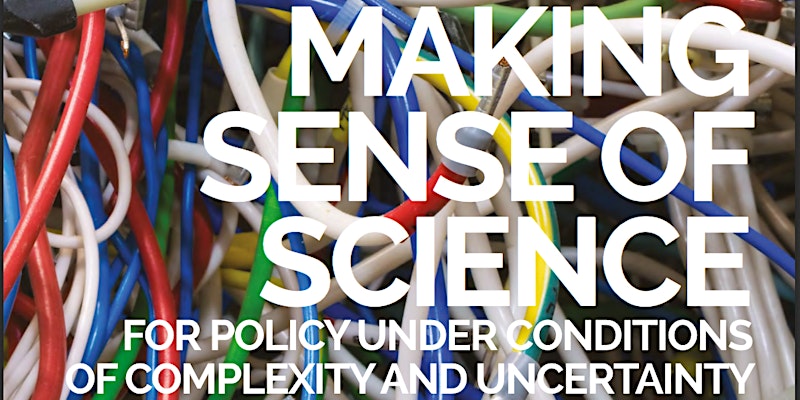Lecture: Science for policy under complex and uncertain conditions
The world is facing increasingly complex and uncertain problems. What can science offer to policymakers and how can the advice be improved?
Drinks and networking from 6-7pm. Panel from 7-8pm.
Tickets available at Eventbrite or through Facebook.
A panel from SAPEA (Science Advice for Policy by European Academies) will discuss their recent report ‘Making sense of science for policy under conditions of complexity and uncertainty’ addressing the question of how to provide good science advice to policymakers. The panel includes:
- Professor Susan Owens, Professor of Environment and Policy, University of Cambridge, and member of the Making Sense of Science Working Group
- Professor Ole Petersen, Vice-President of Academia Europaea (lead academy for Making Sense of Science)
- Professor Andy Stirling, Professor of Science & Technology Policy, University of Sussex, and member of the Making Sense of Science Working Group
Background
At a time of extreme global challenges, science advice is consistently regarded as a vital element in the overall set of evidence considered by policymakers. Science (defined broadly to include the social sciences and humanities) can support effective policymaking by offering the best available knowledge to understand a specific problem, generate and evaluate policy options, and provide meaning to the discussion around critical topics within society. Policymakers are invariably endeavouring to make sense of scientific evidence that is complex, multifaceted and often at the very limits of what is known scientifically.
It is against this backdrop that the European Group of Chief Scientific Advisers has addressed the question of how to provide good science advice to policymakers. The Group asked the consortium of academies, SAPEA (Science Advice for Policy by European Academies), to undertake a comprehensive and far-reaching evidence review. Members of SAPEA will present and discuss the key findings of their evidence review report, Making sense of science for policy under conditions of complexity and uncertainty. The SAPEA published report covers three main areas: what science can offer to policymaking; using scientific evidence; and the potential for improving the use of scientific advice for policymaking. The panel will present and discuss the main insights of the report.





